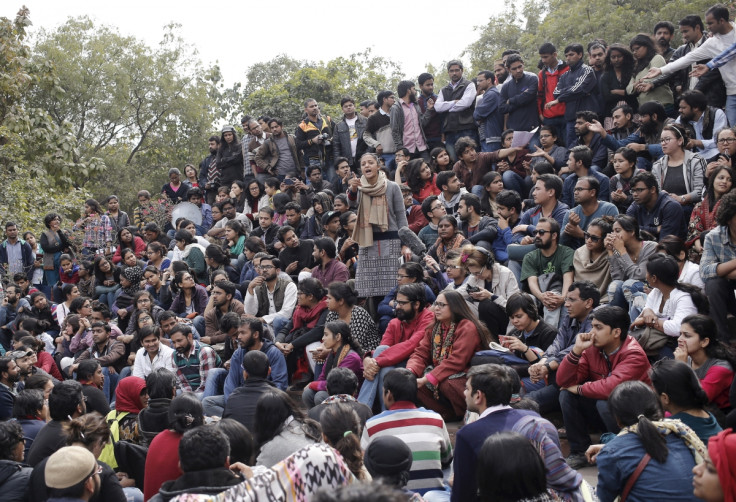JNU turmoil: Narendra Modi agrees to discuss issue in parliament as protests snowball

India's Prime Minister Narendra Modi has agreed to discuss the ongoing protests in the prestigious Jawaharlal Nehru University (JNU) during the upcoming crucial budget session of parliament. Thousands of students, university staff and anti-government activists have turned up for the demonstrations following the arrest of a students' union leader for alleged anti-national remarks.
The protests, followed by violence blamed on Hindu nationalist forces, yet again underscored Modi's and his Bharatiya Janata Party's (BJP) purported intolerance of dissent in the country. Scuffles erupted when the arrested student leader, Kanhaiya Kumar, was brought to the court in New Delhi. The scale of the protests is such that they are being seen as one of the biggest nationwide student agitations in the last two decades in India.
Journalists covering the protests were also reportedly arrested and attacked by alleged right-wing elements and BJP supporters.
Kumar faces charges of sedition, for which the maximum punishment is life imprisonment if found guilty. He reportedly criticised the government's decision to hang Afzal Guru, a Kashmiri separatist, in 2013. Kumar questioned the execution of Guru, who was convicted of attacking the Indian parliament.
The sedition law dates back to 1860 under British rule and was aimed at crushing the freedom movement led by Mahatma Gandhi. Since then it has undergone several amendments making it more stringent.
Amidst the snowballing protests, the police have arrested a former Delhi University professor, S A R Geelani, further heightening tensions. All major political parties have voiced concern over the ruling dispensation's motives.
"The prime minister told opposition MPs that he was not just the PM of the BJP but of the entire nation and that he was ready to discuss all concerns that the opposition MPs have," said Venkaiah Naidu, Union Parliamentary Affairs Minister and senior BJP leader.
During a meeting of the leaders of all political parties ahead of the budget session, which is set to start in the last week of February, Modi said: "We will respond to the issues raised by the opposition and address them... I hope the congenial mood here will be translated into action in parliament."
If anyone shouts anti India slogan & challenges nation's sovereignty & integrity while living in India, they will not be tolerated or spared
— Rajnath Singh (@BJPRajnathSingh) February 12, 2016
Ghulam Nabi Azad, a Congress party veteran, said after the meeting: "The Congress made it clear that those who don't believe in the Indian Constitution or the unity of India should be acted against... but the heavy-handed action at JNU, including the case of sedition, needs to be addressed."
The government's handling of the matter has drawn sharp criticism from several corners. A joint statement signed by more than 450 academics from various universities across the world reads: "Similar attacks on critical dissent and university spaces are being attempted and resisted across the world. An open, tolerant, and democratic society is inextricably linked to critical thought and expression cultivated by universities in India and abroad." The federal government, ruled by the right-wing Hindu nationalist BJP, has denied pursuing any political agenda while dealing with the situation.
© Copyright IBTimes 2025. All rights reserved.






















